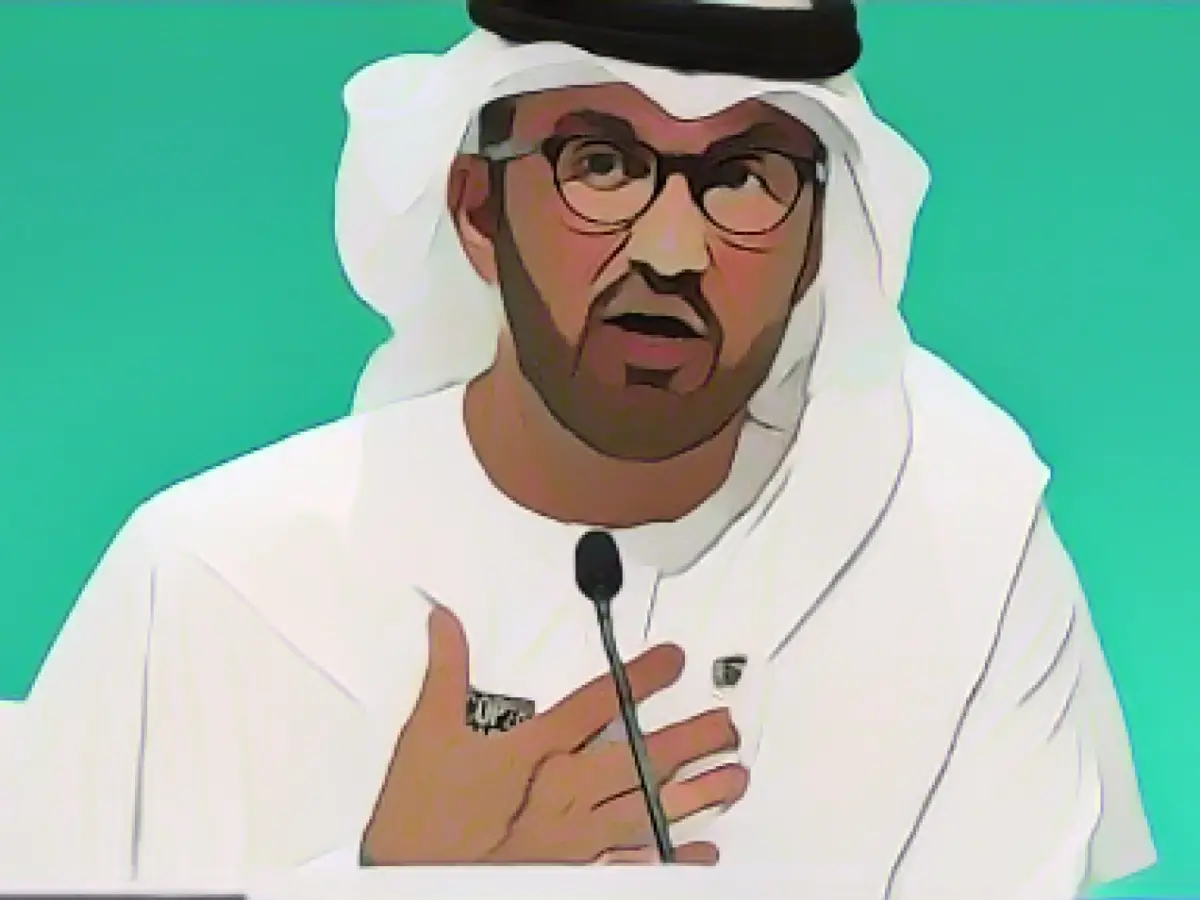At the World Climate Change Conference in Dubai, environmental advocates have voiced their disapproval of the United Arab Emirates' state oil company, Adnoc, and its plans for expansion. The group, comprising Urgewald, Lingo, Reclaim Finance, and Banktrack, argues that Adnoc's initiatives would significantly accelerate climate change. In fact, Adnoc aims to boost its oil production by 25% by 2030[1].
The organizers describe this scenario as an alarming conflict of interest, as Sultan al-Jaber, the head of Adnoc, also serves as the president of the current UN Climate Change Conference involving almost 200 states. They claim that this arrangement could leave a lasting, damaging imprint on COP28[1].
Adnoc's intentions are under scrutiny due to numerous planned gas and oil projects. Currently, 17 such projects have gained approval, and the company shows no signs of altering its fossil fuel-centric business model or lessening its dependence on these resources[1].
Al-Jaber has faced criticism recently after expressing doubts about phasing out fossil fuels in a video call with UN representatives in November. He argued that there is no scientific evidence to support the necessity of replacing fossil fuels to limit global warming to 1.5 degrees Celsius versus pre-industrial times[2].
Fossil fuel production phase-outs have struggled to materialize despite the climate crisis plaguing the world. Nations like the USA, Norway, and the UK are among those contemplating the approval of additional oil production plans[2].
A recent report by the United Nations Environment Programme and prominent research institutions has highlighted that the planned global production volumes of coal, oil, and gas remain in excess of all agreed-upon limits. This report reveals that the output intended by countries for 2030 is significantly more than the permissible amount from the Paris Climate Agreement[2].
Luisa Neubauer of Fridays for Future has also criticized Al-Jaber's statements, finding them incongruent with the global climate negotiation process and the integrity of the conference[2].
Despite the criticism, the UAE announced plans to launch a fund for climate projects during COP28[3].
[1] Adnoc's expansion plans have caught the attention of climate activists, with many expressing concern about the environmental impact. [2] Sultan al-Jaber's dismissal of the need to phase out fossil fuels has sparked debate and criticism from various quarters. [3] Despite the controversy surrounding ADNOC's fossil fuel investments and Al-Jaber's role as COP28 chair, the UAE has still committed to funding climate projects.
The UAE's stance on environmental sustainability and its commitment to clean energy sources remain debated, with critics pointing to the country's oil production expansion plans while acknowledging its investments in renewable energy and the support for the launch of a climate fund at COP28.





